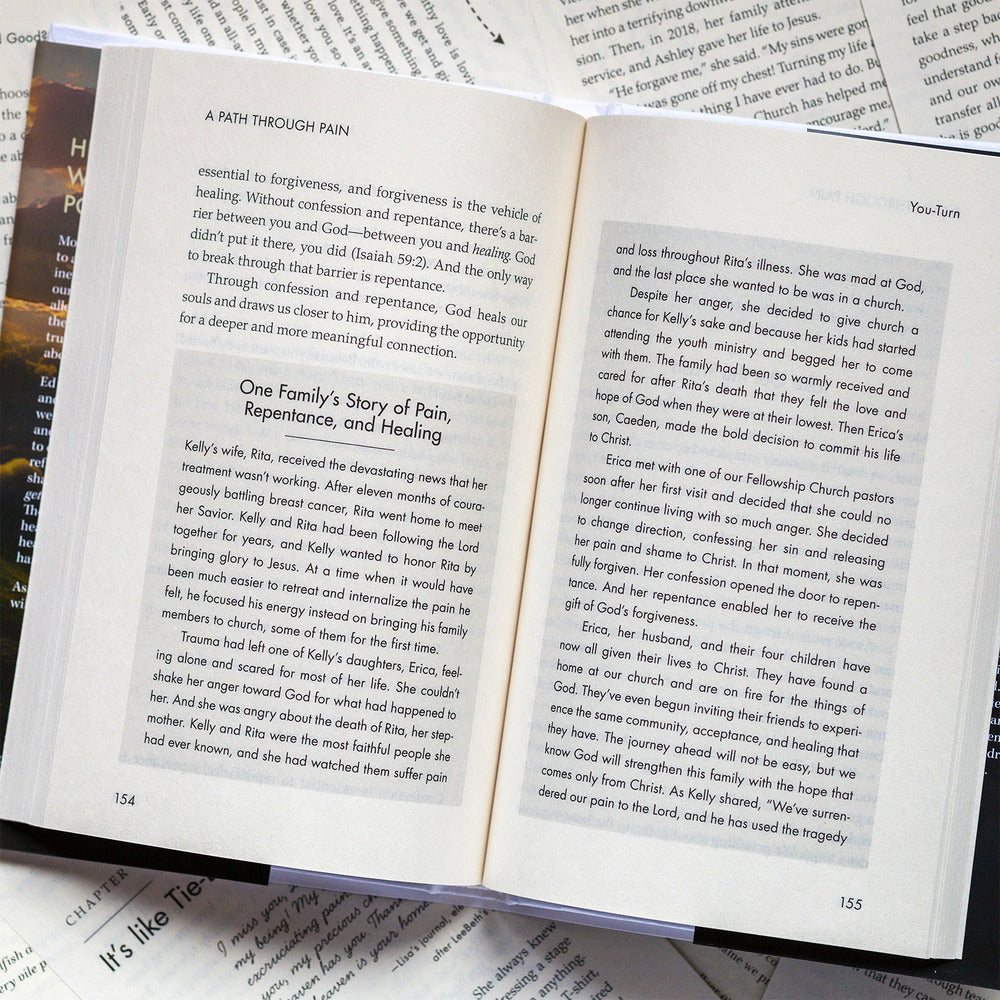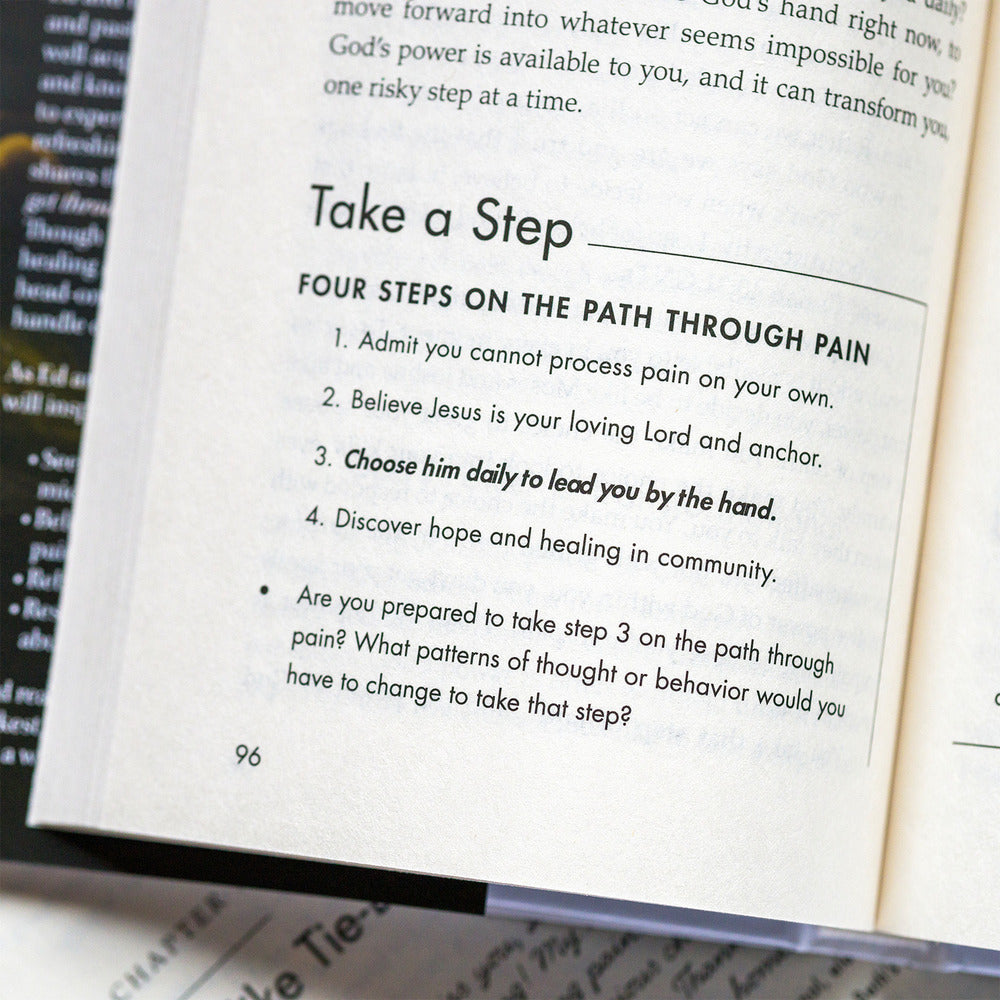When crisis calls, the first place we should take our pain is to the pages of God's survival guide, written for us. In those pages, we find principles we can stand on that will move us from "Why me?" (shock and struggle) to "What now?" (sailing and sharing). And three of the most important principles to understand are these:
God is not your enemy, God is your security, and God desires intimacy with you.
PRINCIPLE 1: GOD IS NOT YOUR ENEMY
We have to realize and accept that while God allows storms to hit your life and mine, He is not the storm maker; Satan is. Satan is the instigator and the mastermind behind all the evil in the world.
We see this clearly in Job's crisis story. The Bible tells us that Satan approached God to trash-talk Job:
You have made him prosper in everything he does... But reach out and take away everything he has, and he will surely curse You to Your face! — Job 1:10–11 NLT
But Satan was wrong. Here's how Job responded when he lost everything:
Job got up and tore his clothes in grief. He shaved his head and threw himself face downward on the ground.
He said, "I was born with nothing, and I will die with nothing. The Lord gave, and now He has taken away. May His name be praised!"
In spite of everything that had happened, Job did not sin by blaming God. — Job 1:20–22 GNT
Remember, because we've sinned, we live in a fallen world; and because our world is fallen, we will encounter evil and crises. That may be difficult to understand and hard to accept, but to blame God for the storms of life would be inaccurate.
Recognize that Satan is the enemy, and resist the temptation to distance yourself from God out of anger or misplaced blame. You might argue, "But I'm not distancing myself from God. I just don't understand. Why me?" But do you know what you're really saying when you ask, "Why me?" Here's the full expression of that question: "God, why did You make this happen to me? Why did You perpetrate this hurt on me and on my family? God, explain Yourself to me."
I (Lisa) was full of questions for God in the wake of LeeBeth's passing. "Why? Why did LeeBeth have to die? Why do other people do much worse and live? Why are we going through this hellacious time when we have served God faithfully? Why couldn't her story be the story of victory here on earth? Why did God cause this to happen? Why, why, why?"
I accepted Christ when I was nine years old, and I have always loved the Lord and tried my best to obey His commands. I have sinned — of course I have — but I have never rebelled. I remember when I first read the book of Job and something akin to a shiver of dread went through me. I hope the Lord doesn't allow Satan to test me, is what that shiver said. I don't want to be like Job. No one does.
- No one wants to endure pain or loss or suffering.
Even Job got to the point where he asked, "Why me?" Not long after becoming sick, Job threw himself a pity party. The Bible records a monologue that goes on for many chapters in which Job asked all kinds of why questions — why hadn't he died at birth, why did God keep testing him, and why wouldn't God simply allow him to die? And then he said this:
I am tired of living.
Listen to my bitter complaint.
Don't condemn me, God.
Tell me! What is the charge against me?
Is it right for You to be so cruel? — Job 10:1–3 GNT
Job asked what many of us ask when pain levels us: "What have I done to deserve this? Why me, God? Why me?" After Job's long lament, God responded to Job in an interesting way. He said,
Who are you to question My wisdom with your ignorant, empty words?
Now stand up straight and answer the questions I ask you. Were you there when I made the world?
If you know so much, tell Me about it... Can you shout orders to the clouds
and make them drench you with rain? And if you command the lightning to flash,
will it come to you and say, "At your service"? — Job 38:2–4, 34–35 GNT
God kind of played a game of Not-So-Trivial Pursuit with Job, saying, "Okay, Job, think fast. Category: History. Where were you, Job, when I laid the foundations of the earth? That's right. You weren't there. Next category: Sports and Leisure. Job, have you ever on a Sunday afternoon kind of just played with lightning bolts? No? Didn't think so." And on it went.
The book of Job devotes four whole chapters to God's response (Job 38–41). In His response, God asked Job this killer question:
Are you trying to prove that I am unjust — to put Me in the wrong and yourself in the right? — Job 40:8 GNT
Wow. Have you ever thought about it that way? That when we ask, "Why me?" we're essentially putting ourselves in the right and God in the wrong?
No, God is not the enemy. And Job finally realized that. He said,
I know, Lord, that You are all-powerful; that You can do everything you want.
You ask how I dare question Your wisdom when I am so very ignorant.
I talked about things I did not understand, about marvels too great for me to know. — Job 42:2–3 GNT
We have a very real enemy — Satan. He is a liar and a thief. When we're in pain and we need someone to be mad at, he is the one to be mad at. The temptation to blame God and ask, "Why me?" is incredibly strong when we're hurting. In our anguish, we may want to distance ourselves or turn away from our Father in Heaven. But that will not lead us forward on the path to healing. Instead, we must stay anchored to Christ, connected to Heaven by the truth of God's Word, and accept that God is not the enemy.













No comments:
Post a Comment